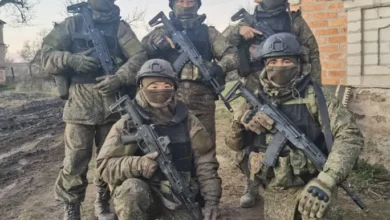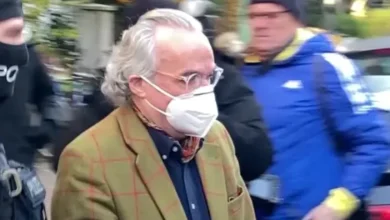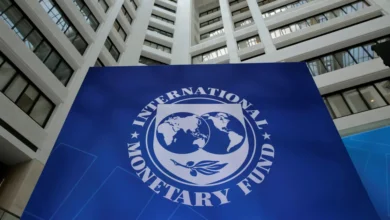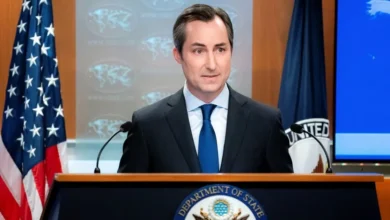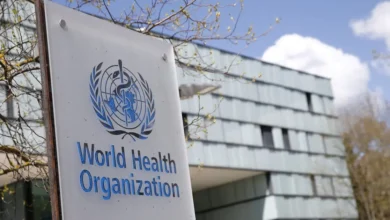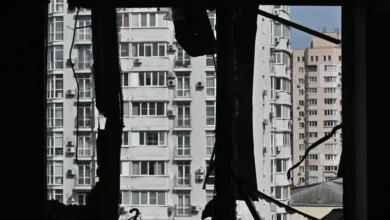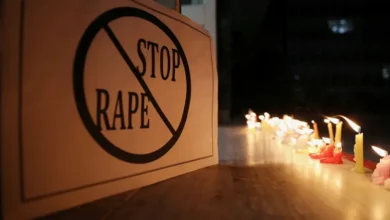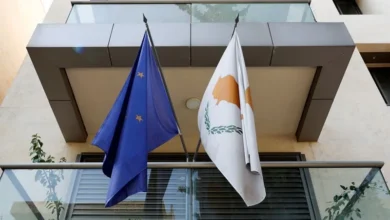‘Britain’s on its knees’: The broken UK town backing Nigel Farage
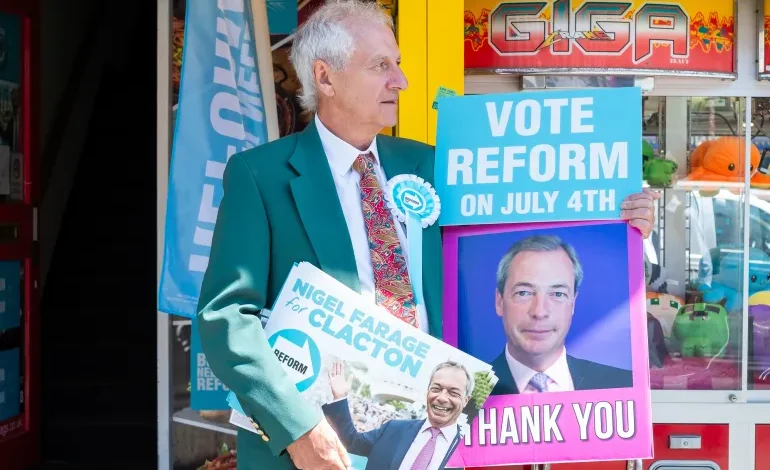
As the midday sun spreads over Clacton, seagulls cawing above the quiet seafront, Lee* meanders around searching for shade.
He stops at an ice cream stand but decides against a purchase.
The Labour Party has long been expected – and still is – to win a majority on July 4. But Farage’s shock announcement earlier this month to lead Reform and stand in Clacton has boosted their chances. Reform is now fighting for dominance in opposition and recent polls indicate it is closing the gap against the Conservatives.
The telegenic Farage, one of the most recognisable British political figures and among the architects of Brexit, is widely expected to finally become an MP on his eighth attempt – with the biggest swing in recent history.
Clacton strongly supported Giles Watling, a Tory, in the 2019 election with 72 percent of the vote. In less than a fortnight, Farage is predicted by the Survation pollster to win more than 40 percent compared with Watling’s 27 percent. Jovan Owusu-Nepaul, a young and stylish Labour candidate, is likely to secure 24 percent.
‘All them boats coming here, I honestly believe they’re terrorists’
A dozen pro-Farage voters Al Jazeera interviewed said undocumented immigration, Reform’s main focus, was their top concern. Several believed in dangerous conspiracy theories.“All them boats coming here, I honestly believe they’re terrorists,” says Lee, referring to the migrants and refugees who arrive on Britain’s shores on flimsy dinghies from France. “They’re coming here to invade us and eventually, they’ll kill us all and wipe us off the face of the Earth.”
“I doubt that very much,” cautions Jeff Bray, a financial consultant working on Reform’s canvassing campaign from its makeshift office above an amusement arcade.
“No, they’re not all terrorists. But let’s be realistic, some of them could be. I don’t know, you don’t know, and the problem is nobody knows … No country wants to let bad people in through their borders.”
Surrounded by boxes of posters and leaflets featuring a cheerful Farage, Bray has abandoned his old loyalty to the Conservatives.
When asked how Reform envisions limiting migration, he says, “You’ll need to ask Nigel to get a really specific answer. What I never do is speak for Nigel. He’s much cleverer than I am.”
Reform’s ‘contract’
Reform, formerly known as the Brexit Party and founded by Farage, has branded its manifesto as a “contract”.
The party backs freezing “non-essential” immigration and would ban students from being joined by their partners or children.
“Essential skills, mainly around healthcare, must be the only exception” for accepting migrant workers, the manifesto says, without providing further details.
It would tax companies a higher rate for employing migrants and says it would aim to “pick up illegal migrants out of boats and take them back to France” – something Paris would not agree to that would test refugee rights laws.
Keith Bloomfield, a 70-year-old Reform member who has previously voted for Labour, connects immigration to violent crime. He has travelled 70 miles from Dartford to support Farage on the campaign trail and is brimming with fan-level excitement.
“Immigration leads to disaster,” he says. “Look, I’m not a racist. Nigel’s not a racist. But we want the best for our country now.
“Foreign input into the country [is] causing knife crime, gun crime, acid [attacks]. We didn’t have this [before].”
He claims to have “no problem” with Turkish, Indian and Jewish people in the UK but sees a “big problem” in London.
“Women, like from Islam, you know, they put the mask on, they have to do this, you know? They can’t go out and enjoy themselves.”
He also believes irregular migrants and refugees are going to “shoot” and “knife” people.
“We’ve seen it,” he says ominously, and suggests crime in London is largely carried out by migrants.
Lynne, a former Tory voter who refused to provide her last name, is more concerned with employment.
“Well, we’re just getting too many immigrants coming over here, especially the illegal ones. And you know, basically they’ve taken the few jobs that we’ve got here,” she says.
Some of Clacton’s many wounds are visible on the streets.
There are hardly any customers at seaside cafes, several shops have been shuttered, and young homeless people aimlessly mill around a central square.
The town is home to high levels of unemployment and economic inactivity – 5.1 percent and 32.9 respectively compared with the national average of 4.4 percent and 21.2 percent.
“Clacton is a seaside town that’s falling apart,” says Alexander Armitt, a 62-year-old who is medically retired, having worked in printing.
Farage tempted him away from his “lifetime Labour supporter” status, he says.
“His policies are what encourage me. I don’t want another Tory government … And his views on immigration are something that’s attracted me.”
But immigration is unlikely the root cause of Clacton’s problems. According to the 2021 census, only 2.4 percent of people in the Tendring area, the Essex council where Clacton is the largest town, were non-UK passport holders, compared with the national average of 9.9 percent.
Almost 70 percent of people in Tendring voted for Brexit in 2016; turnout was also high at 74.5 percent. The vote to leave was among the UK’s highest. About 95 percent of the town’s population is white.
“[Farage] thinks that we are an easy place to gain in an election because people here are so disillusioned and disenfranchised,” says Natasha Osben, the Green Party candidate for Clacton who’s expected to win just five percent of the vote share.
A single mother of four, Osben represents the area she was born and raised in, unlike Farage, a privately educated former commodities trader who lives in Kent, some 80 miles away.
Most Reform supporters Al Jazeera spoke to appreciate the party’s populist agenda and speak of Farage fondly, as though he is a family member.
He “actually speaks from the heart”, he’s “honest”, he’s “a believer in equality”, he’s a “very good gentleman”, a “lovely man”, voters said in Clacton.
Shabna Begum, head of the Runnymede Trust race equality think tank, believes the election is being fought by all parties on “toxic migration policies, which are based on racialised ideas of who is welcome and who is not”.
Reform has been given “considerable media encouragement and curation” with leaders like Farage often enjoying soft-ball interviews, she says.
“Decades ago, what would have been considered an extreme political right in terms of explicit hostility towards migrants, asylum seekers and Muslim people has become mainstream.”

